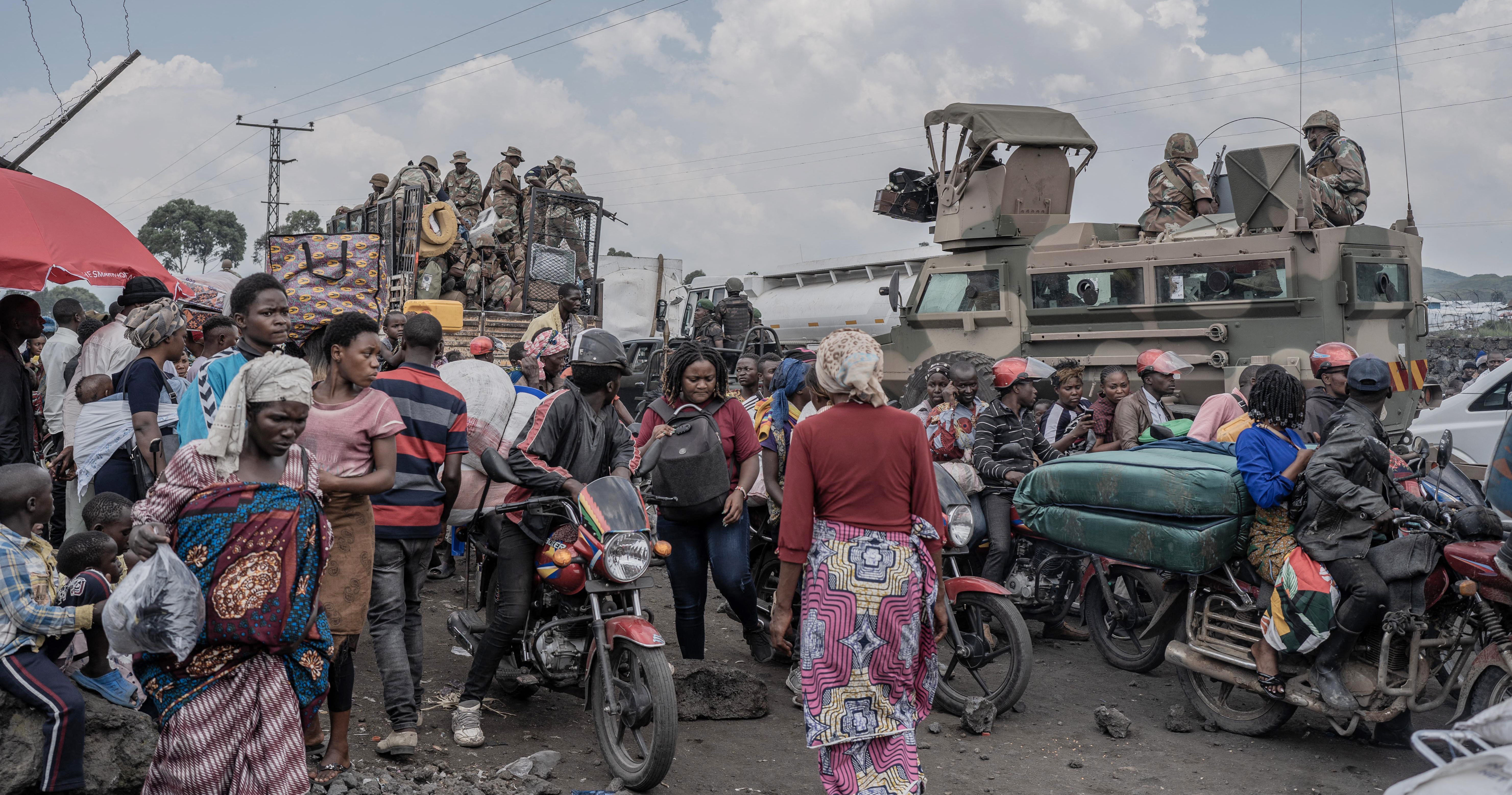Three soldiers of the Southern African Development Community Mission in the Democratic Republic of Congo (SAMIDRC) have been killed by enemy mortar fire and three injured. All were from the Tanzanian contingent of the peacekeeping force, which has a robust mandate to neutralise armed rebel groups.
Meanwhile, a South African soldier in the mission died in a hospital in the Democratic Republic of Congo (DRC) provincial capital of Goma, “while receiving treatment due to health challenges”, the mission said.
It appeared that the death of the South African soldier was not related to the mortar attack, although the press statement did not specify what health challenges the soldier faced.
This was the second fatal mortar attack suffered by the SAMIDRC. In February, two South African soldiers were killed and three injured, also in a mortar attack on their military base. The soldiers had been in the DRC for just two months.
Read more in Daily Maverick: Two SANDF troops killed, three injured in mortar explosion in eastern DRC
An SAMIDRC spokesperson said that despite the losses, “The SAMIDRC remains focused on carrying out its mandate as the principle of collective self-defence and collective action outlined in the SADC Mutual Defence Pact (2003).”
Though no one has claimed responsibility for the deaths of the SAMIDRC troops, it is widely suspected that the perpetrators were members of the M23 armed rebel group, which is strongly supported by Rwanda.
The deaths of the SAMIDRC troops were announced on Monday just after President Cyril Ramaphosa had visited Kigali to participate in the commemoration of the 30th anniversary of the start of the Rwanda genocide.
He met Rwandan President Paul Kagame and afterwards said the two leaders had “rekindled” the strained relations between the two countries.
Relations have been strained partly by the deployment of the SAMIDRC in eastern DRC, which Rwanda considers a hostile act in support of genocidal forces trying to eliminate the ethnic Tutsis in that territory, who are represented by M23.
Pretoria is officially also still waiting for Rwanda to extradite two Rwandan citizens who are wanted in South Africa for alleged complicity in the murder of former Rwandan intelligence chief Patrick Karegeya in a plush Sandton hotel on New Year’s Eve 2013.
SA officials are convinced that Kagame ordered the assassination of Karegeya, who had fled to SA in 2007 after falling out with Kagame. Karegeya co-founded the Rwandan National Congress (RNC), an opposition party, with his friend General Kayumba Nyamwasa, Kagame’s former army chief of staff who also had a bust-up with Kagame and fled to South Africa.
Kagame suspects, or claims to suspect, that the RNC intends to overthrow his government by force and that SA is therefore harbouring a terrorist organisation.
In March 2014, after the murder of Karegeya and about the fourth attempt on Nyamwasa’s life, the South African government finally had enough. It expelled three Rwandan and one Burundian diplomat for alleged complicity in the assassination attempt. Kigali responded by expelling six South African diplomats.
Diplomatic relations have never quite been the same since despite several efforts at “rekindling”. DM





 People gather next to vehicles from the South African National Defence Force (SANDF) as part of the Southern African Development Community (SADC) Mission as they flee the Masisi Territory following clashes between M23 rebels and government forces at a road near Sake on 7 February 2024. (Photo: Aubin Mukoni / AFP)
People gather next to vehicles from the South African National Defence Force (SANDF) as part of the Southern African Development Community (SADC) Mission as they flee the Masisi Territory following clashes between M23 rebels and government forces at a road near Sake on 7 February 2024. (Photo: Aubin Mukoni / AFP)